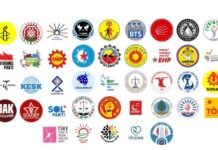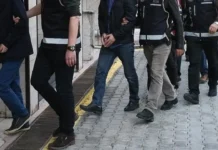A new draft regulation would give Turkey’s top telecom authority the power to block access to social media platforms like Facebook, X, WhatsApp and YouTube based on national security concerns, Turkish Minute reported on Friday.
The proposed rule, drafted by the Information and Communication Technologies Authority (BTK), would expand government control over global social media companies operating in Turkey.
The draft, released for public comment, mandates that social media platforms with more than 1 million users in Turkey must not only appoint a local representative, as already required, but also establish a limited or joint stock company in the country.
The new companies would be subject to licensing by BTK and must comply with a range of administrative, financial and technical regulations.
Under the proposed changes, BTK would be authorized to block access to any internet-based communication platform, regardless of whether it has been officially licensed, citing reasons such as national security, public order or public health.
The authority to impose such access restrictions had previously been exercised primarily through court decisions under Turkey’s existing internet law, but the draft regulation would give BTK direct administrative power to do so.
If passed, the regulation will come into effect on January 1, 2026.
Platforms that fail to obtain proper authorization within six months of the deadline would face harsh penalties, including up to a 95 percent reduction in bandwidth and eventual suspension of service in Turkey.
The maximum administrative fine for failing to comply with the regulation would be 30 million Turkish lira ($789,241).
Foreign-based companies would be required to fully own the Turkish entity they establish, and all official notifications could be delivered through publicly available electronic contact channels.
In addition to licensing, companies would be subject to broader state oversight covering consumer protection, competition, data security, interoperability and incident reporting to BTK.
The regulation would also enable BTK to introduce additional rules to ensure public order, protect national security and fulfill other legal mandates.
The proposal follows years of tightening government control over online speech and communication platforms in Turkey, which has included temporary throttling or blocking of major social media sites during moments of political tension or crisis.
The draft regulation refers to platforms like Facebook and YouTube as “network-independent service providers,” meaning services that operate over the internet independently of traditional telecom infrastructure.
Turkish authorities have temporarily blocked access to social media sites, including Facebook, X and Instagram in the past.
The government of President Recep Tayyip Erdoğan is regularly accused of muzzling freedom of expression.
Turkey, where internet freedom has steadily declined over the past decade, ranks among the “not free” countries concerning online freedoms, according to a report released in October by the US-based Freedom House.















